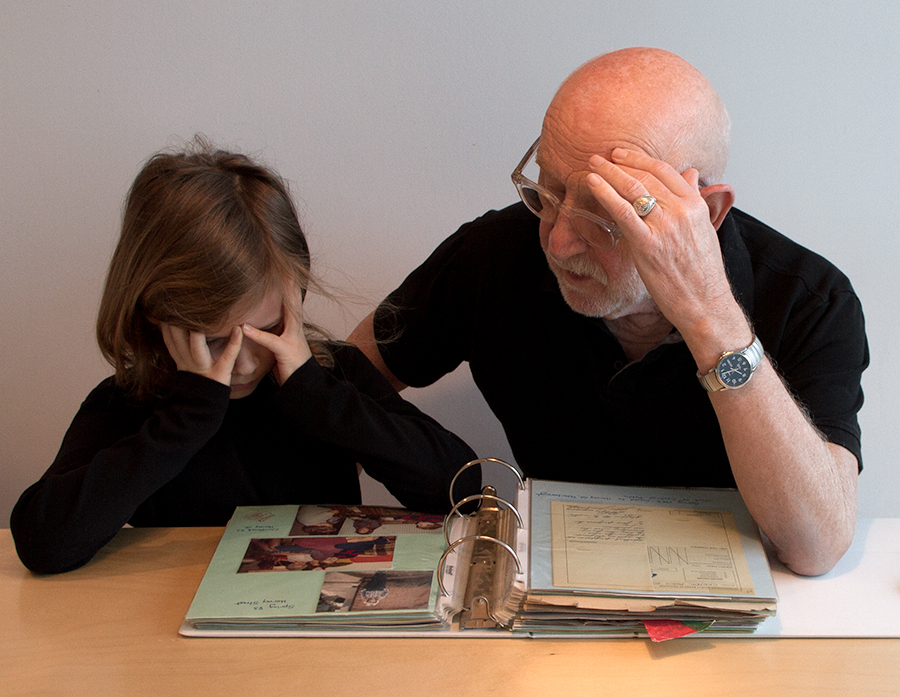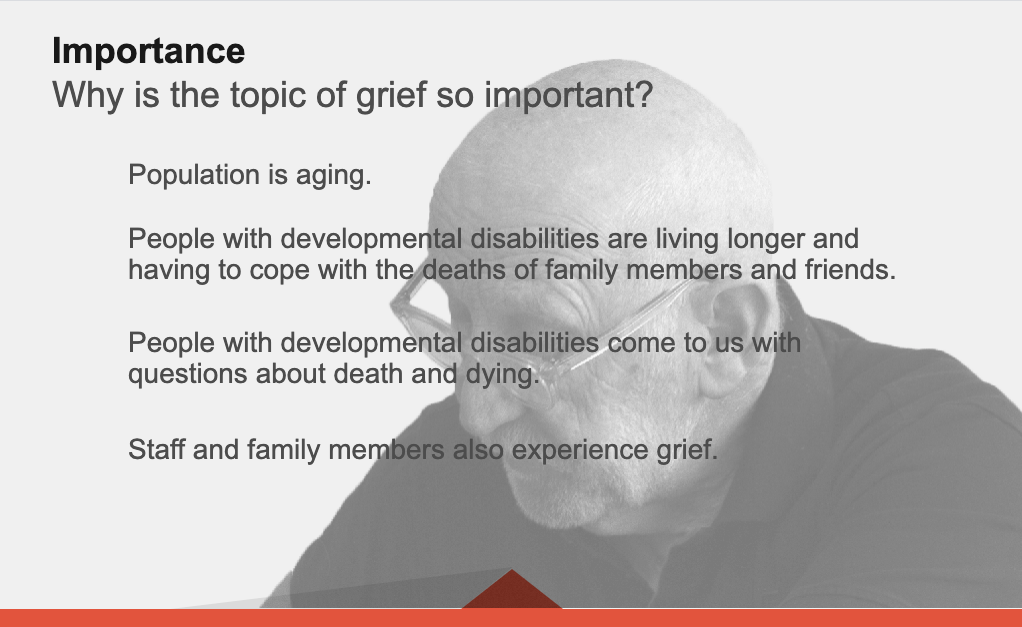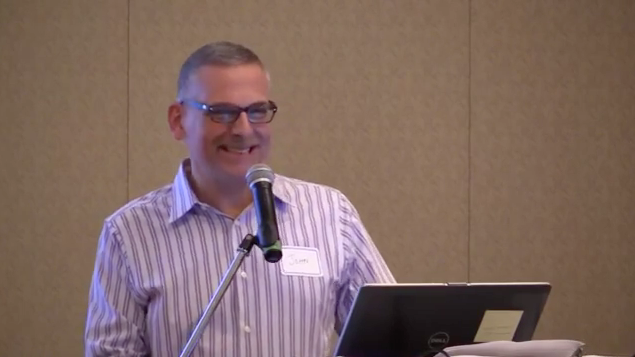
Grief and Bereavement for Persons with Developmental Disabilities who are Aging
John Guido, Outreach Officer at L’Arche discusses ways to support individuals to grieve well and find new life as they age.
Grief and Bereavement: Supporting People with Developmental Disabilities

Death is something that we all have to face at some point in our lives. Knowing more about the feelings and thoughts that come after the death of someone close to us can help us and the people we support. This presentation will focus on the grief that comes after someone dies.
This presentation is for general information only. If you have any concerns regarding yourself or someone you are supporting, please contact a healthcare professional. If you are in crisis please contact your local crisis line or access emergency services. http://ontario.cmha.ca/mental-health/services-and-support/crisis-support/
Children’s Grief and Loss
Feelings of grief may be caused by a traumatic event such as death, illness, or divorce. Experiences of discrimination due to racism, ableism, classism, and other stereotypes or biases can also create grief and loss responses in children. These types of experiences can be direct or indirect. As an adult, it is our role to provide a supportive and empathetic response to help children cope with grief. Read more
Grief and Bereavement Resources
Creating a “Book of Memories”
A book of memories commemorates the death of a loved one and highlights the importance of their relationship to survivors. For people with developmental disabilities, creating a book of memories may be a concrete way to help them remember deceased loved ones. Creating a Book of Memories
Your Feelings on the Anniversary Day (Anniversary Day Plan)
The anniversary of a loved one’s death can be a difficult time as it brings back memories of the death. Having a plan for the day often helps. Your Feelings on the Anniversary Day
Managing Grief Better: People With Intellectual Disabilities
It is imperative that all people, including those with learning disabilities, are able to access the supports given in their culture to understand death and loss. http://www.intellectualdisability.info/mental-health/managing-grief-better-people-with-intellectual-disabilities
Beyond Words
Beyond Words produces books, eBooks and other resources for people who find it easier to understand pictures than words. Here are 4 good resources dealing with death and bereavement:
- Am I Going to Die?
- When Dad Died
- When Mum Died
- When Somebody Dies
https://booksbeyondwords.co.uk/
Let’s talk about Death
Down Syndrome Association of Scotland http://www.dsscotland.org.uk publishes a booklet “Let’s Talk About Death” that you can purchase Link
Helping People with Developmental Disabilities Mourn
This book explains the how-tos of creating rituals for people with developmental disabilities, including the use of pictures, memory objects, drawing, music, and writing in ritual as well as storytelling. Author Dr. Marc Markell is a grief counselor and university professor. http://www.centerforloss.com/bookstore/home.php
Bereaved Families of Ontario
Bereaved helping the bereaved learn to live with grief. Provides information about our affiliates, should you need support.
https://www.bfotoronto.ca/
Toronto Distress Centres
In addition to operating a crisis support line, they offer support to people who have experienced the death of a loved one due to homicide or suicide. https://torontodistresscentre.com

